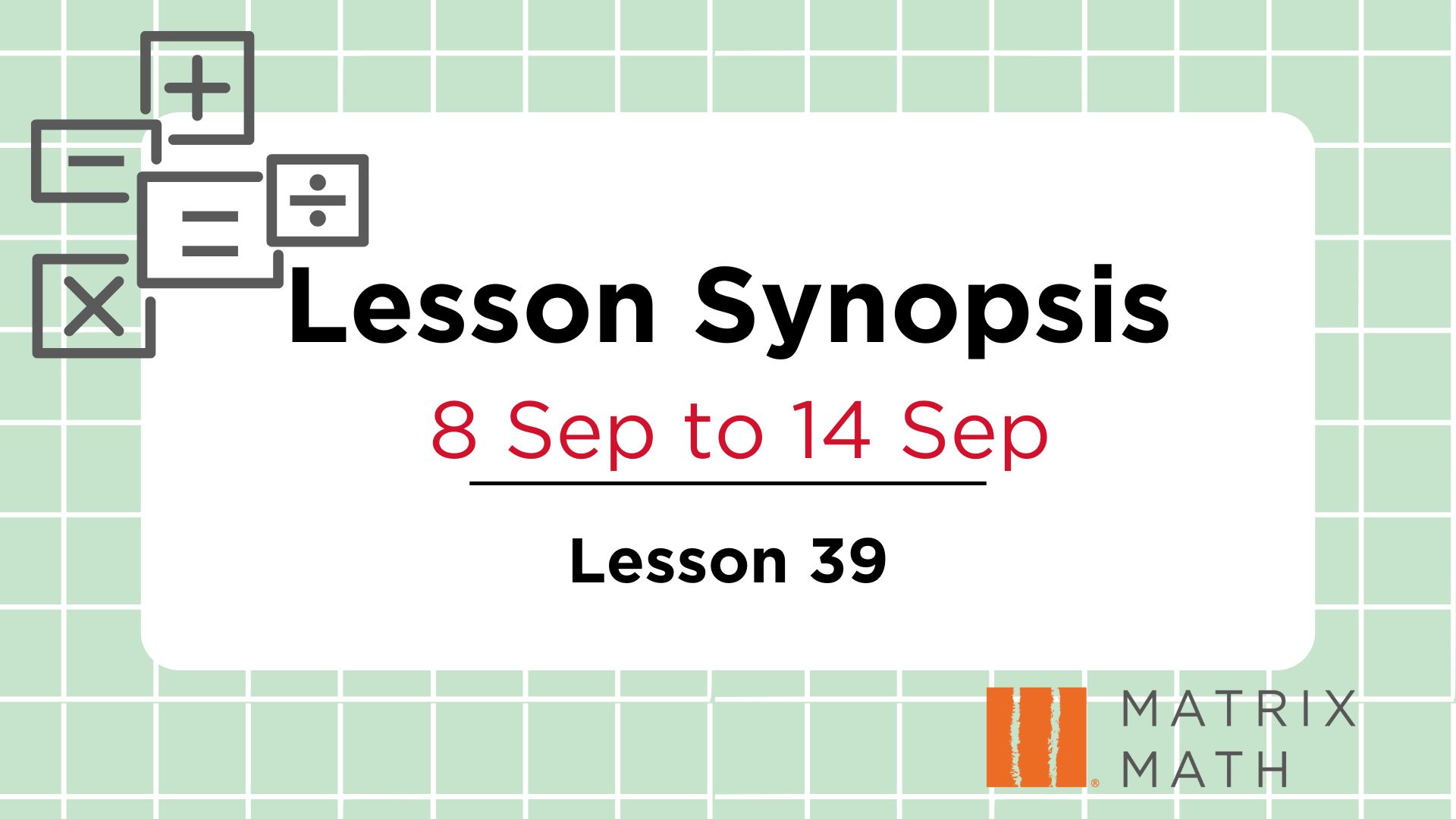
08 September 2025
At Matrix Math, we provide an engaging and detailed learning experience for your child. Matrix Math Tuition programme focuses on essential concepts that will further strengthen their mathematical foundation. The lesson synopsis gives parents a clear preview of the topics and problem-solving skills that will be covered in class. At Matrix Math, we ensure that each lesson is designed to build confidence and mastery in math, preparing students for success in both school and beyond.
Next week in Lesson 39, we will focus on a mix of multiplication and division problem sums.
This lesson aims to assess the children’s ability to differentiate between these two operations and apply the appropriate concept to solve each problem. By combining both multiplication and division, students can demonstrate their understanding and proficiency in using these operations effectively.
This lesson will assess the students’ mathematical skills and foster their ability to apply mathematical concepts in problem-solving scenarios.
In Lesson 39, our focus remains on guiding the children through higher-order Volume problem sums.
The lesson’s focus will be mastering complex concepts within Volume problem-solving. The areas of exploration will encompass:
This week we will embark on a new topic, “Time.” While your child was introduced to the basics of reading time and using a timeline for simple problem sums back in Primary 2, we will delve deeper and expand on those foundational concepts in next week’s lesson.
We’ll be exploring:
This week, we will cover advanced concepts of Area and Perimeter. We will explore the following key areas:
This week, we will continue to delve deeper into Geometry lesson 2.
During this upcoming session, we will delve into the following pivotal concepts:
This week, we will continue with PSLE Revision Lesson 13.
This lesson will involve a systematic review and practice of essential topics, concepts, and problem-solving methods commonly tested in the PSLE. We aim to strengthen students’ understanding, problem-solving abilities, and confidence as they prepare for the upcoming examination.
Active participation and completing the assigned additional practice exercises are crucial for effective revision. These exercises are designed to align with the PSLE requirements, providing students with valuable exposure to the types of questions they may encounter and opportunities to apply their knowledge and skills effectively.